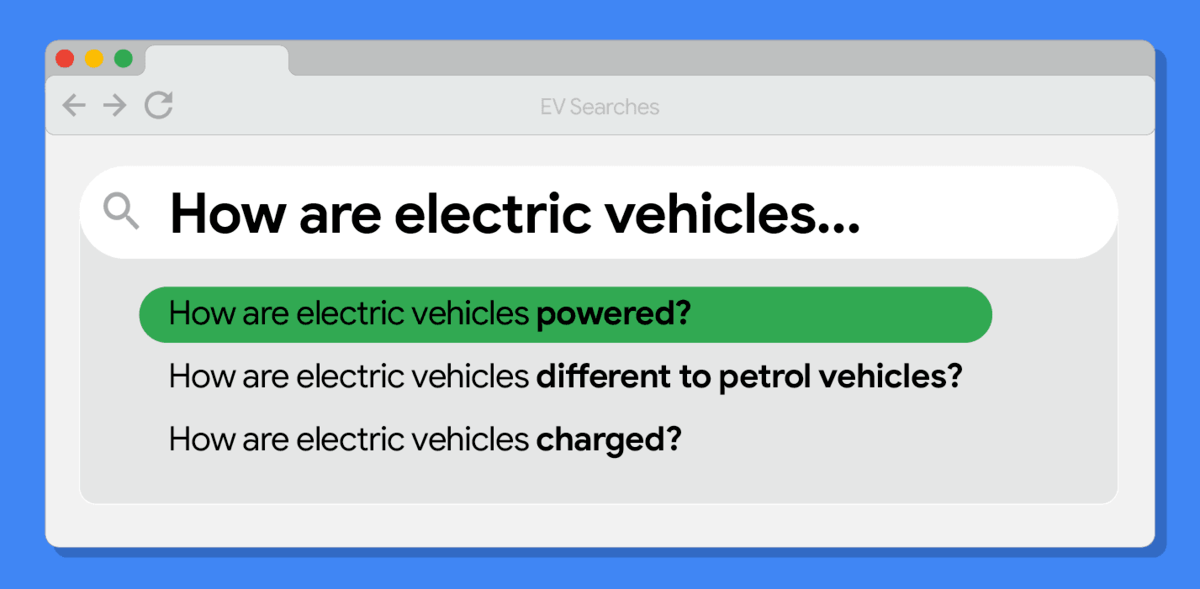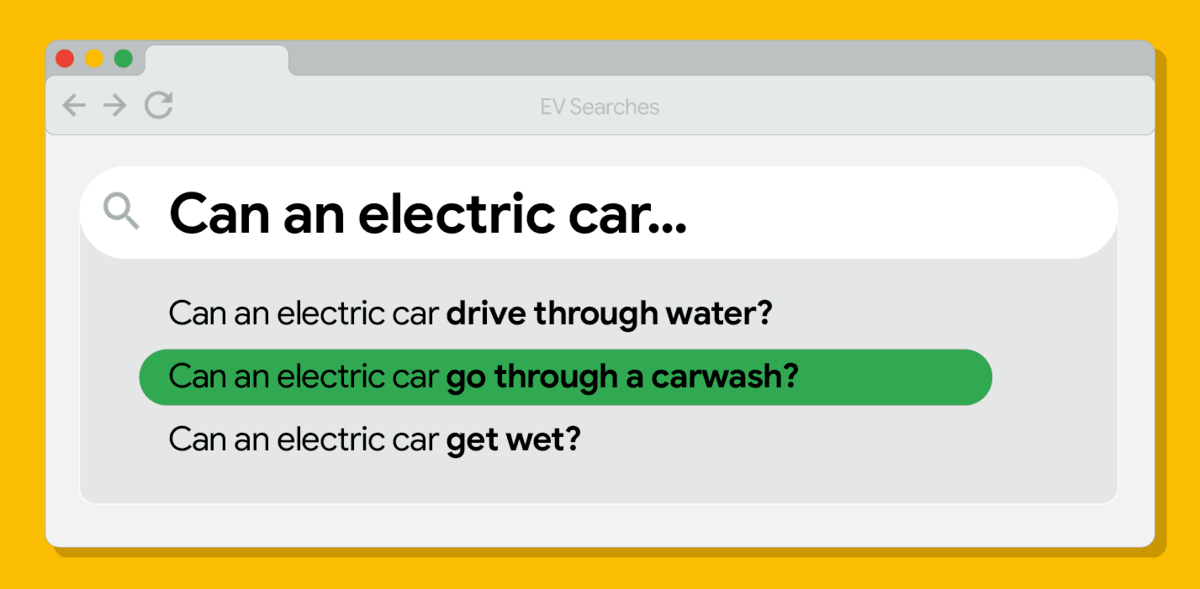Key Findings
-
Just under one in 12 people believe you cannot sit in an EV while it is charging.
-
More than three in 50 people believe EV batteries can explode in a crash.
-
One in 20 people believe you can drive an EV without a driving licence.
-
One in 25 people believe you cannot take an EV through a car wash.
-
Over one in 50 people believe EVs do not have brakes.
Here at Leasing Options, we’re constantly researching what people are asking about when it comes to cars and leasing. Over the last few years, we’ve seen a huge increase in interest around Electric Vehicles, thanks to the rise in their popularity.
During this time, we've certainly seen some unusual, to say the least, questions, so we thought we would take a minute to answer some of these myths and misconceptions to help those who still seem a little confused when it comes to EVs.

How Are Electric Vehicles Powered?
Electric Vehicles are powered by electricity. They work by simply plugging them into a charge point, which can be found all over the country as well as at your home if you purchase one. The electricity comes from the national power grid and is then stored in your vehicle’s rechargeable batteries. These are then used to power an electric motor, which then turns the wheels.

How Do Electric Cars Reverse?
Electric Cars function by using a motor instead of an engine, meaning there are no gears. In an Electric Car, when you want to go backwards instead of forwards, all that happens is the motor spins backwards instead of forwards, which in turn reverses the car instead of moving it forwards.
Can You Sit In An Electric Car While Charging?
Unbelievably, just under one in 12 people believe this EV myth to be true. From a safety perspective, just like sitting in your car while filling up with petrol or diesel, you can sit in an electric car while it charges. Electric cars are designed to safely transfer high voltage levels and a high current to the battery without the driver, or anyone else in the car, being in harm's way.
From a practical perspective, an Electric Car will continue to charge whether you get in or out of your car at any point while it is charging. There are some models where unlocking/locking the car may interfere with the charge, resulting in a brief stoppage, but the charge will resume shortly afterwards.

Do Electric Cars Explode On Impact?
Thankfully, we’re happy to let the three in 50 people that believe EV batteries can explode in a crash that the answer to this is that it is incredibly unlikely that a crash will result in an explosion. According to research carried out by evfiresafe, 14 EV explosion incidents have occurred since 2010… from a global market of 10 million EVs in operation at the end of 2020, meaning that while an explosion is possible, it is very, very unlikely.

Can You Get Struck By Lightning In An Electric Car?
An Electric Car is just as safe as any other regular car when it comes to lightning. If you were to be hit by lightning, Electric Cars are designed to make the charge travel through the external body and then pass safely to the ground, protecting the driver and any passengers that may be in the car at the time.

Can An Electric Car Shock You?
Whether you’re the driver, a passenger or recharging, you will not be in any danger of an electric shock when in or around your Electric Car. The electrical components that make up your EV are fully protected. If there were to be a fault detected that could possibly put you in harm's way, the car would immediately and automatically stop any flow of electricity to the battery

Are Electric Cars Safe In The Rain?
Electric Cars have been designed to work in a wide range of operating conditions, including wet-weather conditions, especial when living in the UK. It’s safe to use them as well as charge them when it’s raining, as EVs are purposefully engineered to withstand rain and water intrusion.
In a recent interview, Nissan’s North American senior manager for zero emissions technology development, Jonathon Ratliff, claimed that the electrical system of a Nissan LEAF was rated to be safe while it was submerged in water at 1 meter for 30 seconds, meaning that charging or running your EV in the rain should never be an issue.

Can An Electric Car Go Through A Car Wash?
The electrical systems within an Electric Car are sealed to prevent and withstand water, so, for the one in 25 people that believe you cannot take an EV through a car wash, washing a car, whether that be at home or at an automatic car wash, is totally safe.
Did you know that EVs actually perform better than regular petrol and diesel-powered cars when it comes to water? This is thanks to not having the need for an air intake, where water can get in and damage the engine.

Do Electric Cars Have Brakes
According to our survey, over one in 50 people believe EVs do not have brakes. This is another EV myth. Yes, Electric Cars do have brakes, however, where the confusion may occur is that they work slightly differently from those found on petrol/diesel cars. EVs come with hydraulic brakes, just like any other car, but also have brake-by-wire technology, which electrically powers the brakes too.
An Electric Car needs standard hydraulic brakes as regenerative braking does not slow an EV very quickly. So, if a potential incident occurs, the electric brakes may not solely be able to stop your vehicle quick enough, which is where the hydraulic brakes come in.

Can I Drive An Electric Car Without A Licence?
No, you cannot drive an Electric Car without a licence.
The reason for this is because, whilst the car is powered by electricity rather than petrol/diesel, pretty much everything else is the same. You are also still in control of the car, meaning you are a potential hazard to others on the road.
So, there you have it, some of the most unusual EV searches answered.
If you’re looking to get behind the wheel of a brand new Electric Car, Leasing Options is here to help. We have a huge range of Electric Cars available for you to choose from, as well as a load of additional information on EVs in the guide section of our site if you need any further EV-based questions answering.
Alternatively, simply get in touch and one of our team will get back to you asap to help you with anything else you require.
